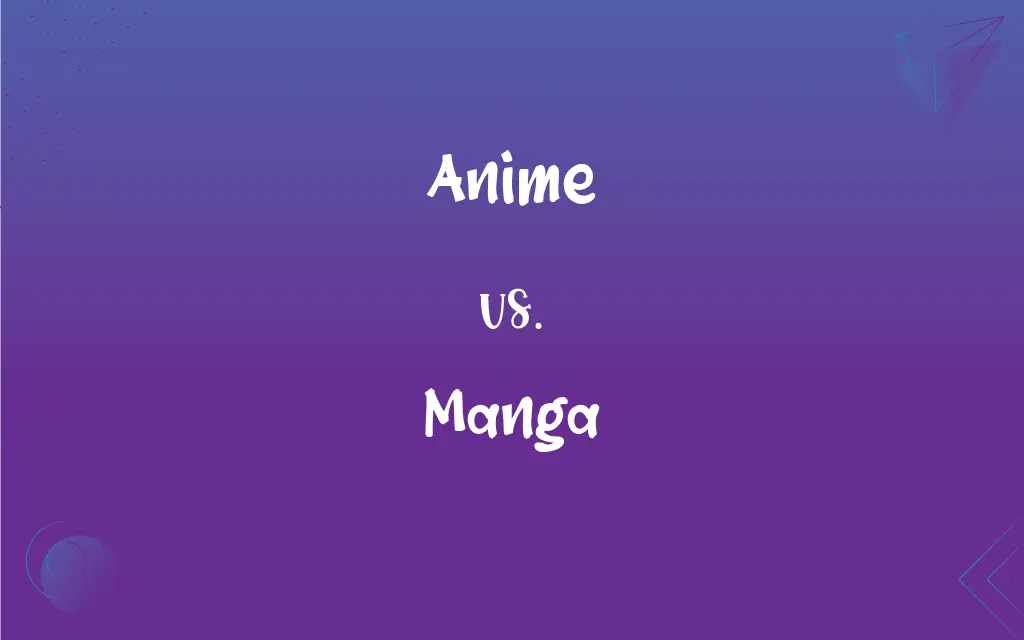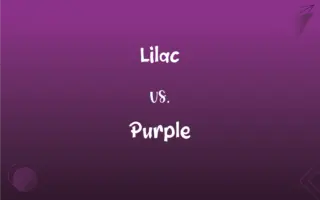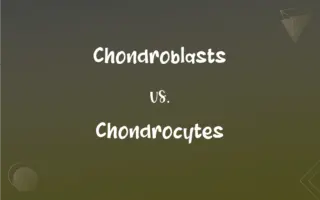Anime vs. Manga: What's the Difference?
Edited by Janet White || By Harlon Moss || Updated on October 24, 2023
Anime is Japanese animated TV shows or films; manga are Japanese graphic novels or comics.

Key Differences
Anime refers to animated productions, often characterized by colorful graphics, fantastical themes, and vibrant characters. Originating in Japan, anime can encompass a wide range of genres, and is enjoyed by various age groups across the globe. Manga, on the other hand, is a style of Japanese comic books and graphic novels. Like anime, manga caters to a vast array of audiences and genres, from action and adventure to romance, horror, and more.
The method of consumption is a prominent difference between anime and manga. While anime is watched, be it on television, theaters, or streaming platforms, manga is read. Due to this, anime typically involves voice acting, music, and sound effects, enhancing the sensory experience. Manga relies on the reader's imagination, paired with the artist's illustrations and often black-and-white panels, to tell the story.
Production-wise, creating anime is generally more time-consuming and expensive than producing manga. Anime requires teams for animation, voice acting, sound design, and more. Conversely, manga can be produced with a smaller team, often just an author and an illustrator, making it a quicker medium to publish.
Culturally, both anime and manga have made significant impacts beyond Japan. Anime conventions, cosplay events, and manga cafes can be found worldwide. While both mediums share thematic elements and often overlap in content—with many anime being adaptations of popular manga—their distinct modes of presentation cater to different preferences and experiences.
Comparison Chart
Medium
Animated productions.
Comic books or graphic novels.
ADVERTISEMENT
Method of Consumption
Watched.
Read.
Production Complexity
More extensive teams and higher cost.
Smaller teams, often just writer and artist.
Sensory Experience
Involves sound, music, and visuals.
Relies on illustrations and reader's imagination.
Color Scheme
Typically colorful.
Mostly black and white, some colored versions.
Anime and Manga Definitions
Anime
Japanese animated productions often based on manga.
The anime Attack on Titan was adapted from its manga counterpart.
ADVERTISEMENT
Manga
A style of Japanese comic books or graphic novels.
One Piece is a long-running manga series.
Anime
A medium covering various genres and themes.
The anime Death Note delves into psychological thriller elements.
Manga
Serialized publications often in black and white.
Manga chapters are eagerly awaited by fans every week.
Anime
Animated shows or films with distinctive colorful graphics.
The anime Spirited Away is a critically acclaimed film.
Manga
Illustrated stories read from right to left.
The manga Bleach has intricate illustrations and plotlines.
Anime
A style of animation originating from Japan.
Naruto is a popular anime series.
Manga
A medium spanning numerous genres and demographics.
The manga Fruits Basket caters to a romance and drama audience.
Anime
A global phenomenon influencing pop culture.
Anime conventions attract fans from all over the world.
Manga
The source material for many anime adaptations.
The success of the Demon Slayer manga led to its anime adaptation.
Anime
A style of animation developed in Japan, characterized by stylized colorful art and often adult themes.
Manga
A style of comic strip or comic book originally developed in Japan, characterized by stylized colorful art and often adult themes.
Manga
A comic originating in Japan.
Manga
(uncountable) An artistic style heavily used in, and associated with, Japanese comics, and that has also been adopted by a comparatively low number of comics from other countries.
Manga
A comic in manga style, regardless of the country of origin.
Lately I've been reading a Brazilian manga.
Manga
(Christianity) A covering for a crucifix.
FAQs
Can anime be based on sources other than manga?
Yes, anime can be original or adapted from novels, games, etc.
Are manga always adapted into anime?
No, not all manga get anime adaptations.
What defines manga?
Manga are Japanese comic books or graphic novels.
What is anime?
Anime is a style of animation that originates from Japan.
Is anime only for children?
No, anime covers various genres catering to all age groups.
How do I read manga?
Manga is typically read from right to left, top to bottom.
How long is an anime episode?
Most anime episodes are about 20-25 minutes long.
How frequently is manga published?
Manga can be weekly, bi-weekly, monthly, or vary based on the series.
Why do anime characters have big eyes?
Stylistically, big eyes convey emotion and give characters a unique look.
What's a "mangaka"?
A "mangaka" is a manga artist or author.
Is manga a form of literature?
Yes, manga is a significant literary medium in Japan.
Why are anime characters often brightly colored?
Colorful designs make characters distinctive and memorable.
Can manga be colored?
While typically black and white, some manga versions are colored.
Are there anime movies?
Yes, many anime movies exist, both standalone and series-related.
Can I create my own manga?
Absolutely, with practice and dedication, many create their manga stories.
Why do some anime have fillers?
Fillers allow the source material (often manga) to progress ahead of the anime adaptation.
Are there manga cafes in Japan?
Yes, manga cafes offer a place to read manga and relax.
Do anime voice actors sing show themes?
Often, anime voice actors participate in singing opening or ending themes.
How can I differentiate manga genres?
Manga genres are often indicated by terms like Shonen, Shojo, Seinen, etc.
Why is some anime not available in my country?
Licensing restrictions may limit anime availability regionally.
About Author
Written by
Harlon MossHarlon is a seasoned quality moderator and accomplished content writer for Difference Wiki. An alumnus of the prestigious University of California, he earned his degree in Computer Science. Leveraging his academic background, Harlon brings a meticulous and informed perspective to his work, ensuring content accuracy and excellence.
Edited by
Janet WhiteJanet White has been an esteemed writer and blogger for Difference Wiki. Holding a Master's degree in Science and Medical Journalism from the prestigious Boston University, she has consistently demonstrated her expertise and passion for her field. When she's not immersed in her work, Janet relishes her time exercising, delving into a good book, and cherishing moments with friends and family.































































